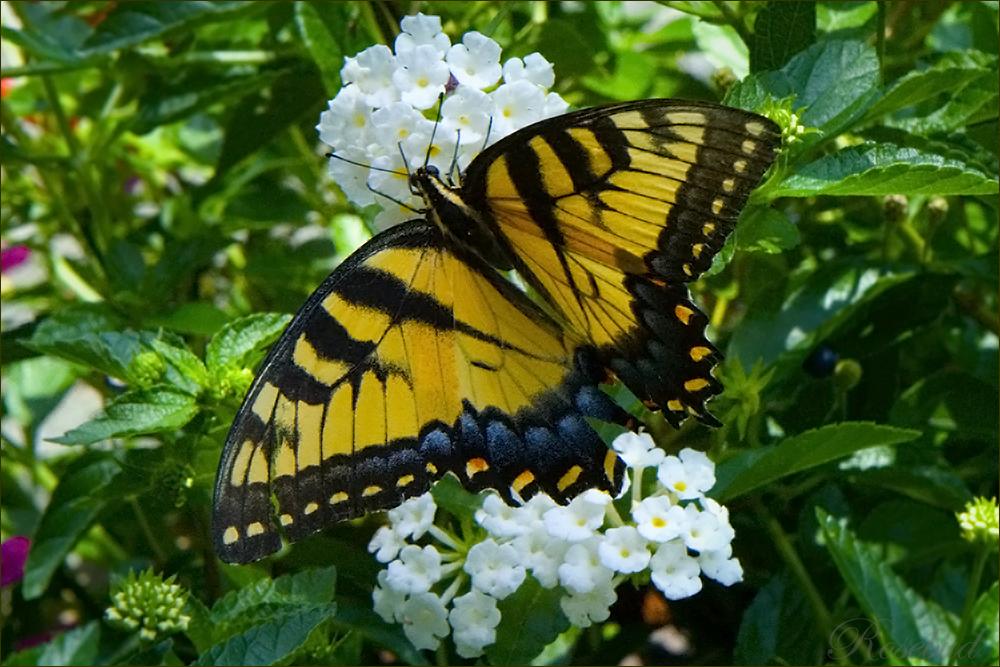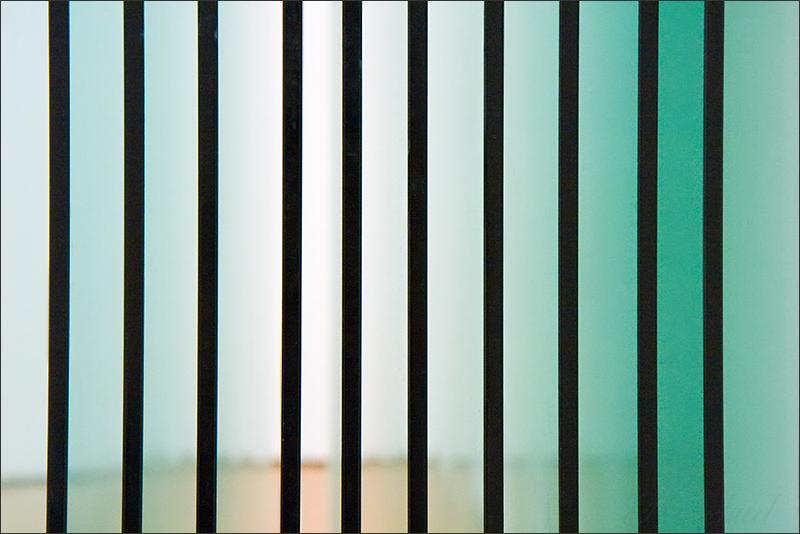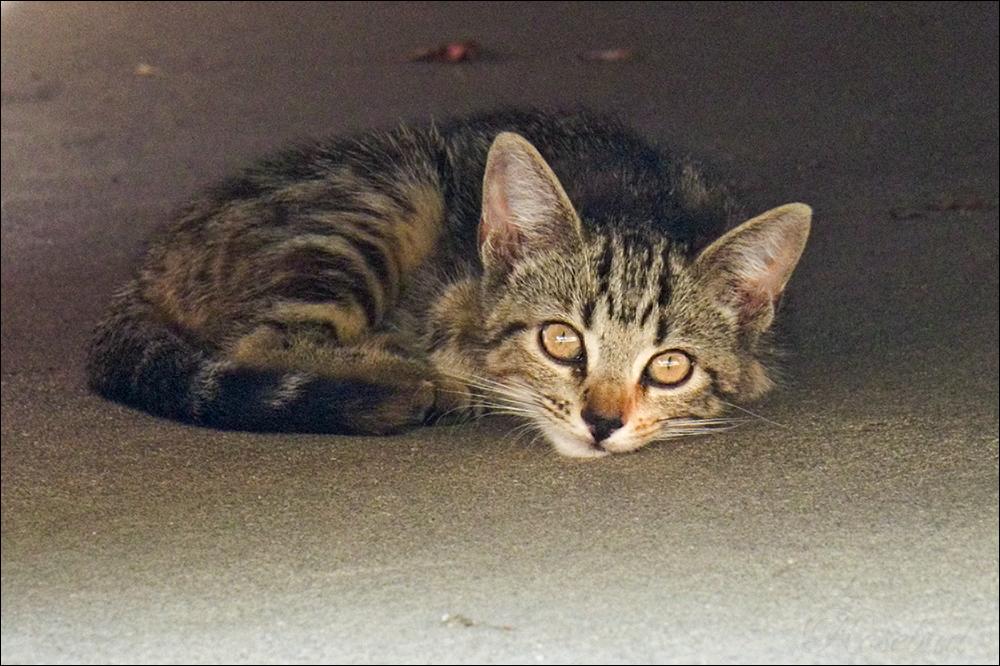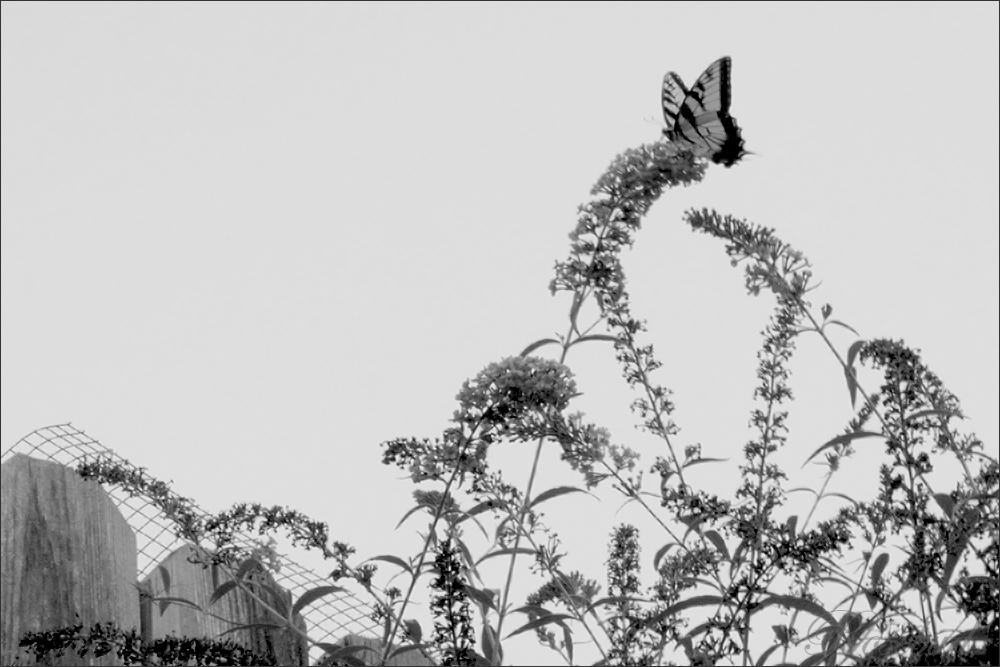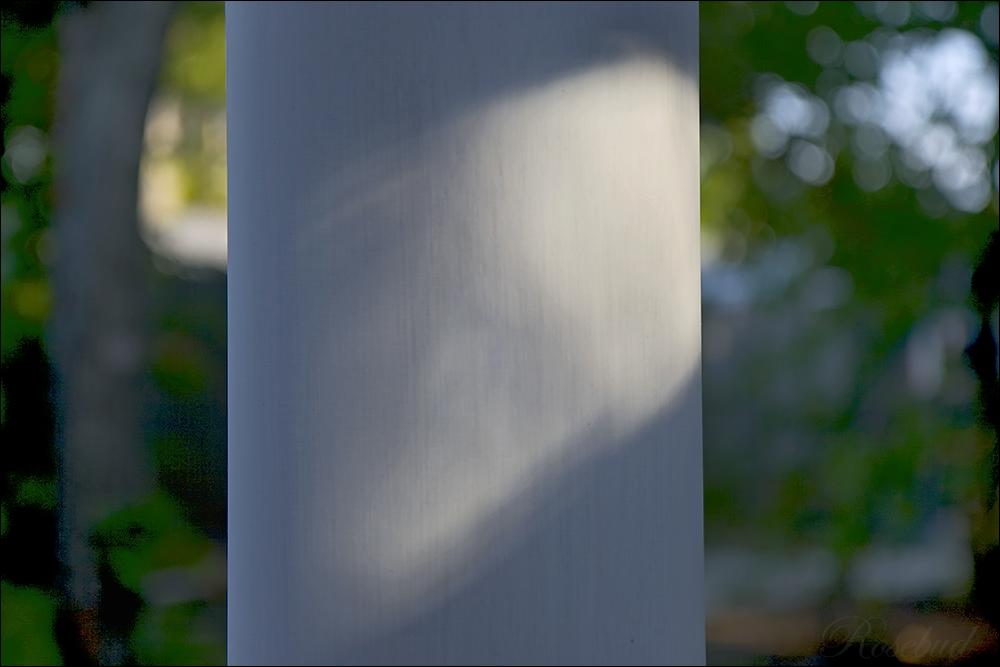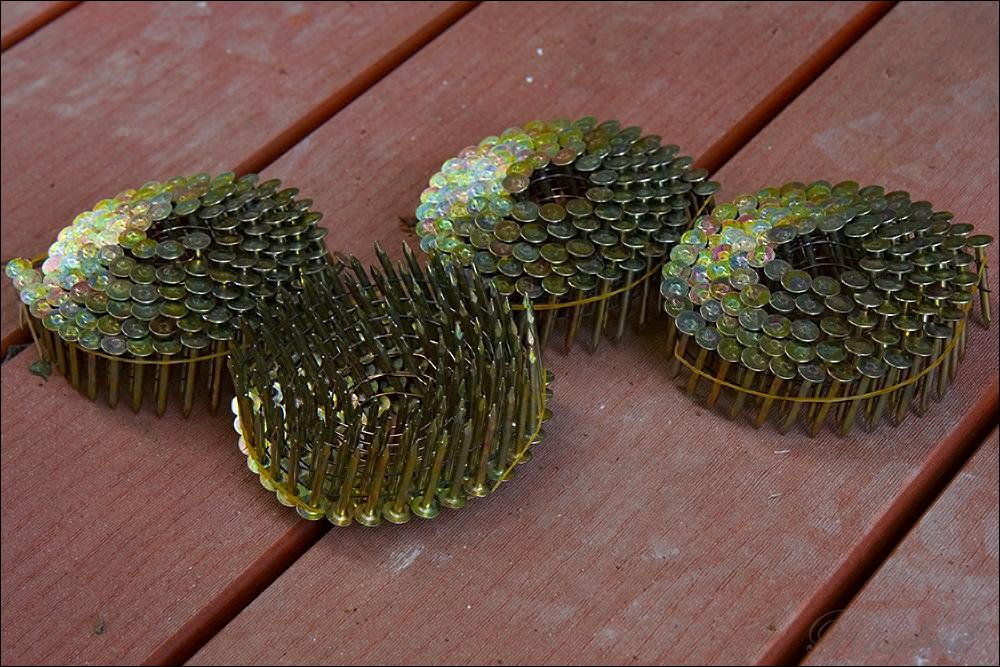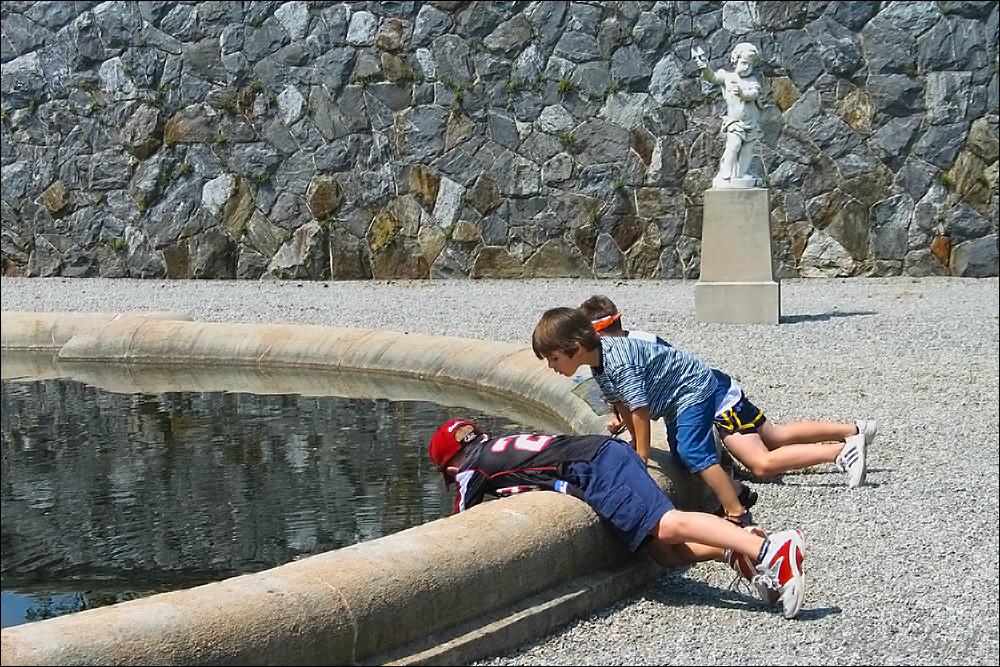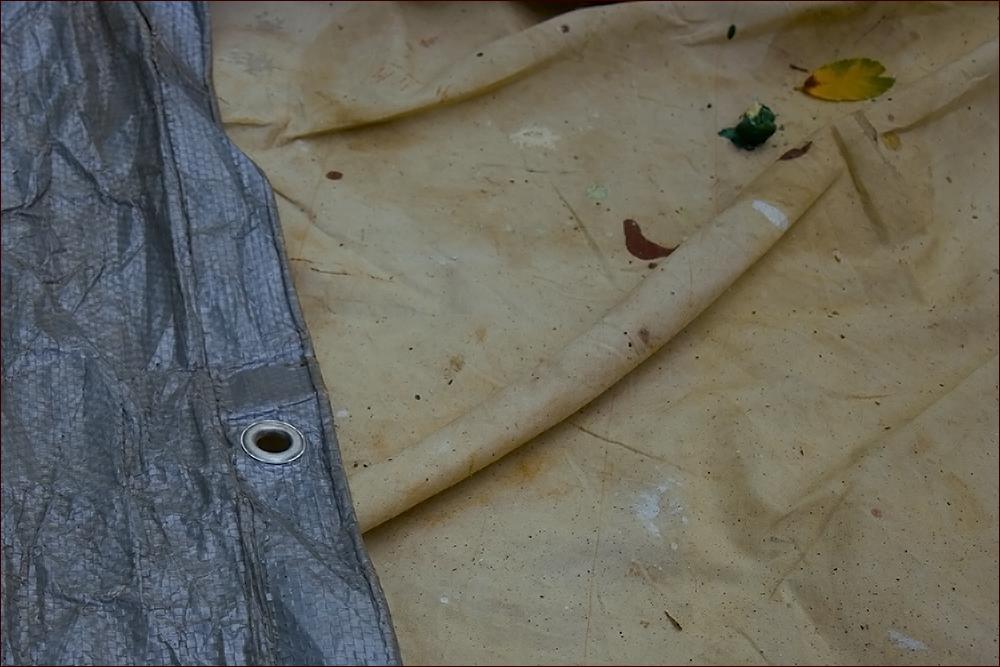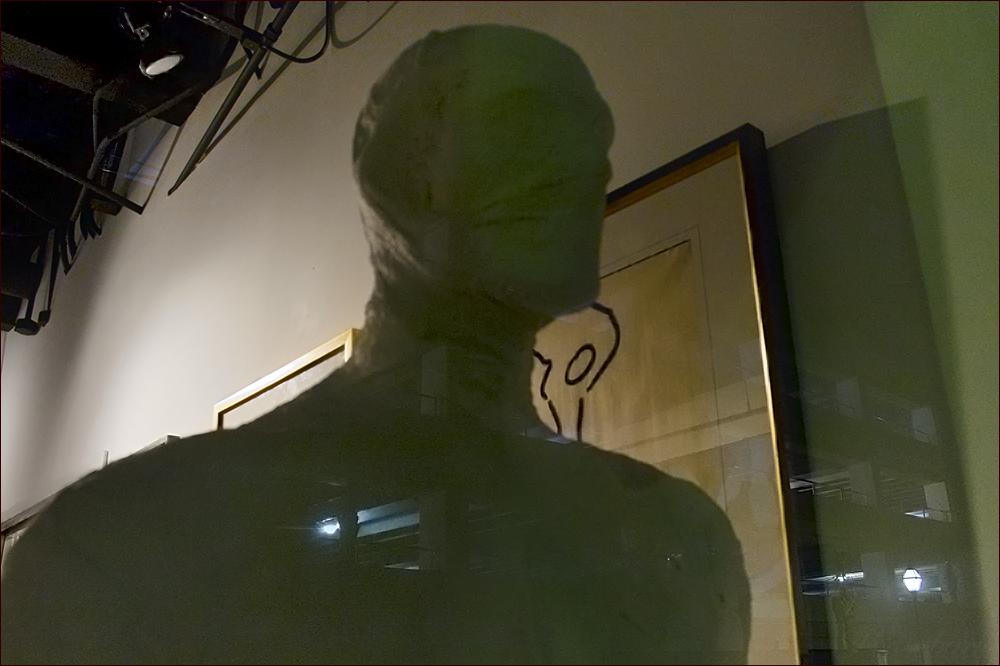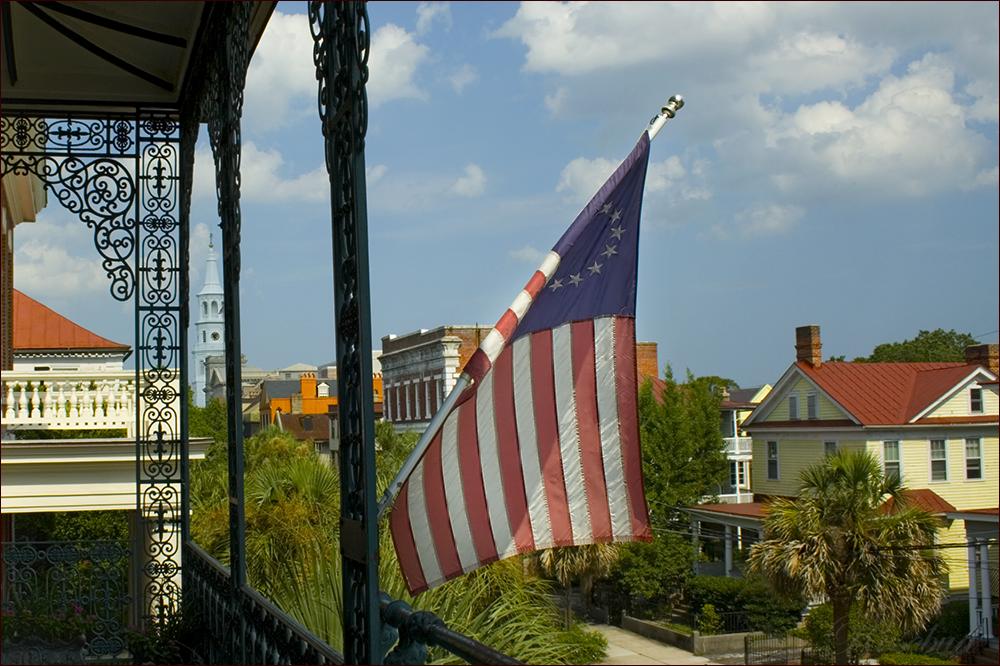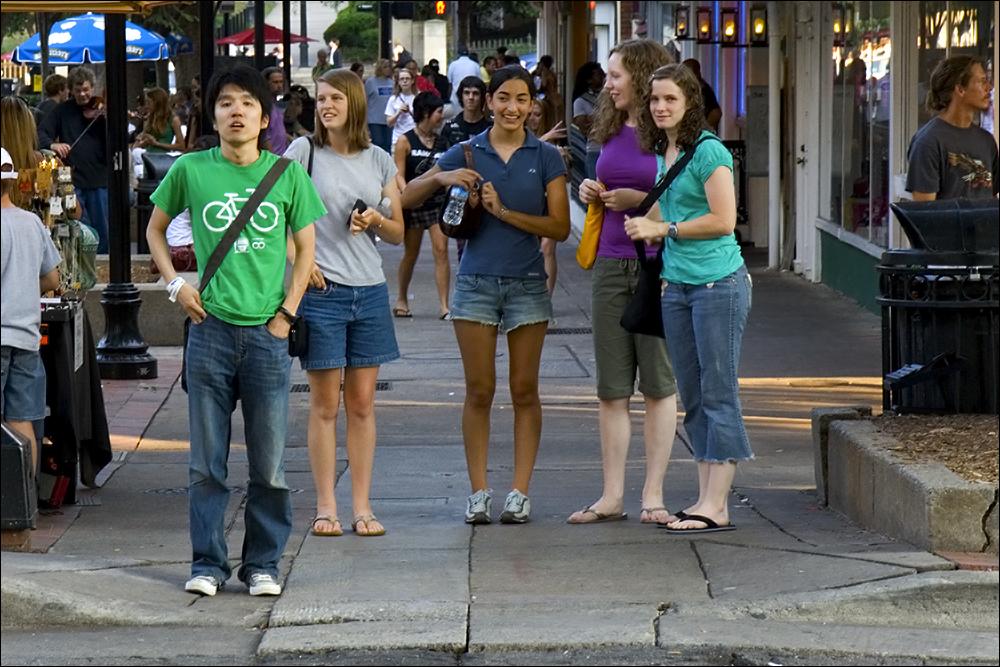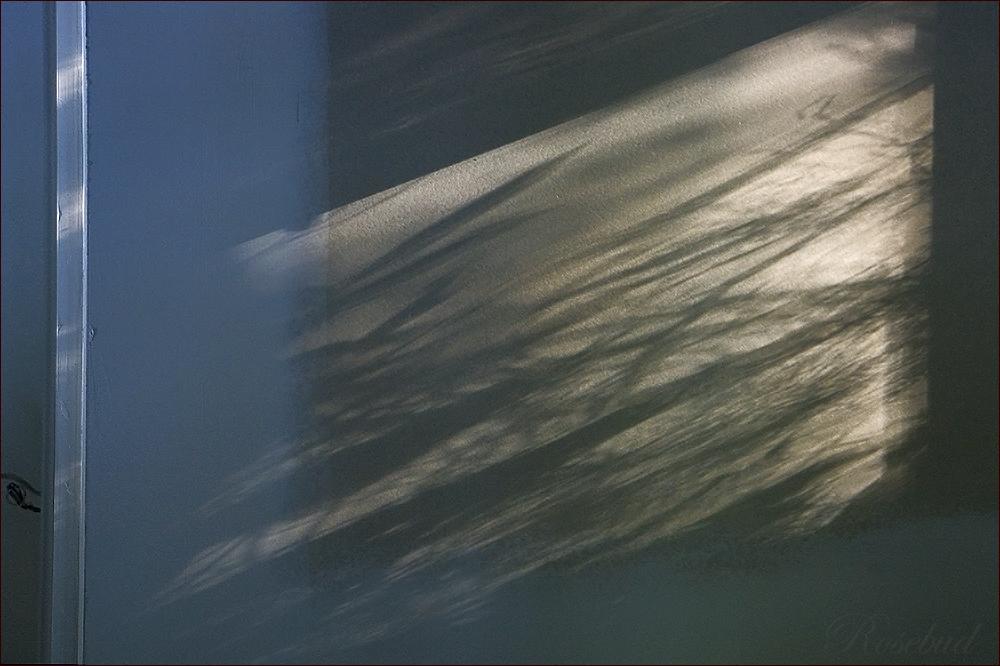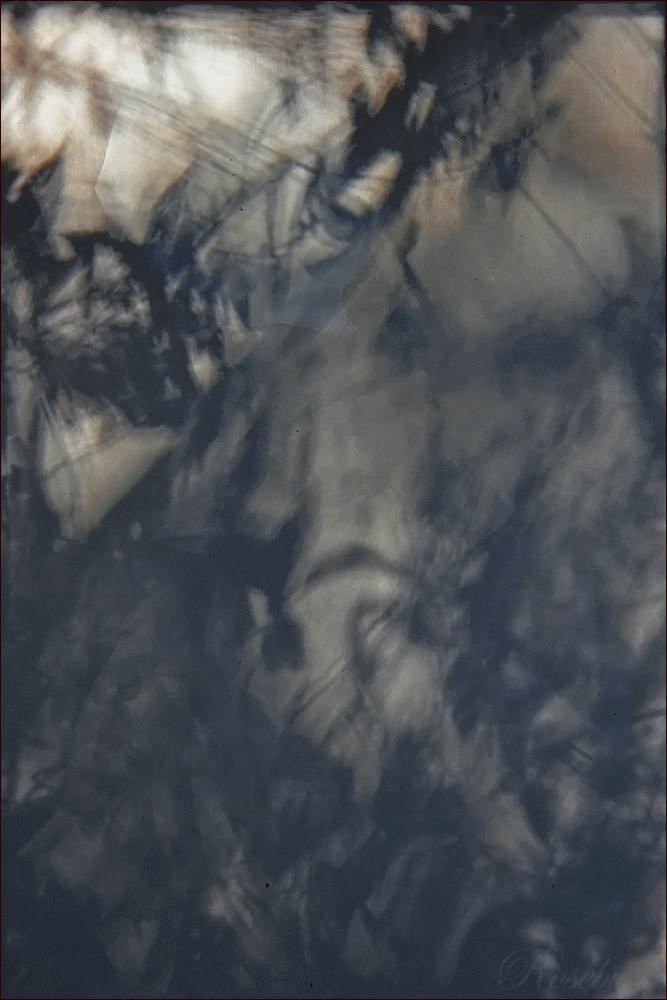Thursday, July 31
something very private and old
Butterflies: a long, shimmering curtain. Millions of them. They practically blotted out the sky. I felt as if some secret had torn free from the earth, something very private and old, something much larger than myself . . . Salmon, wildebeest, locusts. Storks, swifts, snow geese. What if the torrents of animals migrating past us every year left behind traces of their routes? What if Arctic terns sketched lines through the sky as they poured out of Antarctica and back; what if steelhead trout left thin, colourful filaments behind as they muscled up our rivers? The skies above our fields would become a loom; the continents would be bundled in thread. [more]
-- Anthony Doerr "Butterflies on a wheel" Granta 102
Granta
Posted by
rb
at
7/31/2008
![]()
Wednesday, July 30
Ideal Audience
Not scattered legions,
not a dozen from
a single region
for whom accent
matters, not a seven-
member coven,
not five shirttail
cousins; just
one free citizen—
maybe not alive
now even—who
will know with
exquisite gloom
that only we two
ever found this room.
-- Kay Ryan
I am always a student of poetry, and in it I find a rest that I don't find anywhere else, whether writing my own or reading the masters. And by rest I mean not quiescence or stop, but release. What poetry does is put more oxygen into the atmosphere. Poetry makes it easier to breathe. [more]
-- Kay Ryan
Kay Ryan
Posted by
rb
at
7/30/2008
![]()
Tuesday, July 29
a feeling of wonder and of delight
Professor Block has told you how one can detect the precession of the magnetic nuclei in a drop of water. Commonplace as such experiments have become in our laboratories, I have not yet lost a feeling of wonder and of delight, that this delicate motion should reside in all the ordinary things around us, revealing itself only to him who looks for it. I remember, in the winter of our first experiments, just seven years ago, looking on snow with new eyes. There the snow lay around my doorstep—great heaps of protons quietly precessing in the earth's magnetic field. To see the world for a moment as something rich and strange is the private reward of many a discovery.
-- Edward M. Purcell Nobel Lecture 1952
Nobel Lecture- Nobel Prize in Physics (Research in Nuclear Magnetism)
Posted by
rb
at
7/29/2008
![]()
Saturday, July 26
and suddenly it is evening
Everyone stands alone at the heart of this earth
Stunned by a ray of sunlight
and suddenly it is evening.
-- Salvatore Quasimodo
Tr. J. Ruth Gendler
Salvatore Quasimodo
Posted by
rb
at
7/26/2008
![]()
Friday, July 25
"All my ships are white," said Rhoda
"Run!" said Bernard. "Run! The gardener with the black beard has seen us! We shall be shot! We shall be shot like jays and pinned to the wall! We are in a hostile country. We must escape to the beech wood. We must hide under the trees. I turned a twig as we came. There is a secret path. Bend as low as you can. Follow without looking back. They will think we are foxes. Run!
"Now we are safe. Now we can stand upright again. Now we can stretch our arms in this high canopy, in this vast wood. I hear nothing. That is only the murmur of the waves in the air. That is a wood-pigeon breaking cover in the tops of the beech trees. The pigeon beats the air; the pigeon beats the air with wooden wings."
"Now you trail away," said Susan, "making phrases. Now you mount like an air-ball's string, higher and higher through the layers of leaves, out of reach. Now you lag. Now you tug at my skirts, looking back, making phrases. You have escaped me. Here is the garden. Here is the hedge. Here is Rhoda on the path rocking petals to and fro in her brown basin."
"All my ships are white," said Rhoda. "I do not want red petals of hollyhocks or geranium. I want white petals that float when I tip the basin up. I have a fleet now swimming from shore to shore. I will drop a twig in as a raft for a drowning sailor. I will drop a stone in and see bubbles rise from the depths of the sea . . . I have picked all the fallen petals and made them swim. I have put raindrops in some. I will plant a lighthouse here, a head of Sweet Alice. And I will now rock the brown basin from side to side so that my ships may ride the waves. Some will founder. Some will dash themselves against the cliffs. One sails alone. That is my ship. It sails into icy caverns where the sea-bear barks and stalactites swing green chains. The waves rise; their crests curl; look at the lights on the mastheads. They have scattered, they have foundered, all except my ship which mounts the wave and sweeps before the gale and reaches the islands where the parrots chatter and the creepers . . ."
-- Virginia Woolf The Waves
Posted by
rb
at
7/25/2008
![]()
Wednesday, July 23
a quietness
The clouds began to gather in the morning, light, fleecy ones; they were gathering from different directions, mostly from south-west; the sun raced between them and shadows covered the land. Towards the evening, the sky was dark and rain was in the air . . . it began to drizzle; it laid the all-prevading dust, washed the leaves clean and it brought that fragrance of rain on dry earth. It was a pleasant smell and the birds had taken shelter for the night . . . Suddenly two forks of lightning tore through darkness and for a second in great clarity [were] the naked branches of the trees and the straight electric poles and a man crouching under a tree. And now it had settled down to rain for the night. The little boy with the string was no longer on the road.
Attention is seeing. Seeing is an art as listening. But one hardly ever listens or sees; everyone is so occupied, so busy with the things that have to be done, with one's joys, problems and tears. One has no time to see. But time does not give you sight; time hinders seeing, listening. Time is the space for experiencing and experience only dulls the mind and heart. The mind is filled and the heart has turned away and so there is no seeing. To see knowledge must be kept in the books and not in the mind; knowledge interprets, chooses, giving colour, opinion, weighing, criticising, choosing and then there is no seeing. When the mind is so crowded and the heart dull with sorrow, how can there be seeing? What you see is your own projections, your own desires, your own fears but you don't see what is. It goes by and you are lost with your own toys. But when you do see, do listen, then that act is the miracle that transforms, that has emptied the mind and the heart of the past. You don't have to do anything, thought is incapable of this miracle; then that seeing is love, as listening is. You cannot come by these through exertion, through the dullness of discipline, through any bargaining nor through the shock of unanswerable questions. There must be emptiness to see, to listen there must be a quietness.
It was rather late in the night; lightning and rain were making great noise. Again, the brain was aware of the lightning, and the rain on the window, but it was motionless, astonishingly still, for that immensity was there with clarity and unapproachable strength.
-- J. Krishnamurti Krishnamurti's Notebook
Posted by
rb
at
7/23/2008
![]()
Tuesday, July 22
Sunday, July 20
i am so glad and very
i am so glad and very
merely my fourth will cure
the laziest self of weary
the hugest sea of shore
so far your nearness reaches
a lucky fifth of you
turns people into eachs
and cowards into grow
our can'ts were born to happen
our mosts have died in more
our twentieth will open
wide a wide open door
we are so both and oneful
night cannot be so sky
sky cannot be so sunful
i am through you so i
-- E.E. Cummings
Posted by
rb
at
7/20/2008
![]()
Saturday, July 19
caterwauling
[A] few years ago I was invited to a record club in Lower Manhattan by a painter friend. The record club worked this way: each of the twelve attendants brought two songs that they were in love with at the moment, and, according to a sequence generated by randomly dealt playing cards, we circled the room in two rounds with everyone playing his or her songs in turn. Though I've never really been a book club sort of guy, I was taken with the spirit of this gathering right away.
On the Friday night in question, the record club was marching along, doing what it does, glancing off of jazz, electronica, Britpop, early rock and roll, Old Time, when suddenly there emerged from the speakers the most strangled, desperate racket I had heard in ages.
The first problem was the singer's voice. The singer sang in a tortured falsetto, or most of the time he did. Sometimes he hovered just above and below the line that separated his chest voice from his falsetto. In the tenor range, he had a boyish drawl, sort of like Kurt Cobain, if Kurt had been raised in the Ozarks. But then there was his boy soprano, into which he lurched for various pitches, where he was silly and ghostly and a little bit shrill all at the same time.
Having noted the singer, I shifted my focus to the accompanying ensemble: acoustic guitar, organ, celeste, two rather primitive drummers. The band would probably have sounded adorable, like the soundtrack to the tugboat in Mister Rogers' neighborhood, were it not for the structure of the song itself, which I later learned was entitled "Holy Kisser's Block Party." It began with an alarm clock, followed by section A, some kind of whispery chant in which Daniel, the lead vocalist, and some girl backup singers intoned their rhetorical intention, "I do vow, / here and now, / I will kiss again / It starts right now." This was followed by section B, in which the celeste, or chimes, dominated, and a very different melody was explored, followed by a section C, in which varieties of love were described and suggested by the narrator, "Begin your loving to the one who bothers most," this in turn followed by a section D, an actual chorus, in which piano propelled the rhythms, major triads, while above hovered some really strange counterpoint between Daniel and the backup singers, his sisters. Did I not say that the band in question, the Danielson Famile, really are a family? Daniel on acoustic guitar and vocals; Rachel on vocals and flute and sometimes organ; Megan on bells and vocals; David and Andrew on drums and percussion, respectively. "Get your rear in gear, lend an ear, have no fear, draw near, my dear, bring the cheer, take time to hear." And then a section E, which was really section B in a minor key, consisting only of a repetition of the line, "As coals of fire rest on their heads," with minimal accompaniment. Back to section A.
I thought it was some of the worst caterwauling I had ever heard. And I like caterwauling.
The record club always produces a little anthology—the minutes of the proceedings, if you will—and so I had the opportunity to hear "Holy Kisser's Block Party" again, in my car, because that's often where I first listen to compact discs, and I confess I was a little shocked by the song. I resisted its complex demands. And yet when I stumbled on it, periodically, when playing the anthology of the record club event, I realized that I was beginning to think the song was indisputably great.
-- Rick Moody "How to Be a Christian Artist" The Believer 25
Danielson
The Believer
recordclub.org
Rick Moody
Posted by
rb
at
7/19/2008
![]()
Friday, July 18
Die Soldaten
Bernd Alois Zimmermann’s 1965 opera “Die Soldaten,” the story of a woman’s degradation at the hands of a series of heartless soldiers, has a prelude of such stupefying intensity that it stands for the moment as the ne plus ultra. The full orchestra sustains an enormous dissonance spread out over many octaves. Beneath it, the timpani pound out, “in iron rhythm,” the note D—perhaps a nod backward to “Don Giovanni.” The onslaught returns several times as the prelude unfolds, though it periodically gives way to a frenzy of competing voices: the trumpets tangle in independent rhythms, violins buzz around maniacally in their upper registers, the timpani repeatedly fall out of synch with the principal one-two pulse. The music is at once hyper-organized and deranged, a death machine that leaves chaos in its wake . . .
Before the music started, we were seated in bleachers, which rested on wheels at one end of an array of railroad tracks. When Steven Sloane, the conductor, gave the downbeat, the apparatus began gliding slowly across the vast expanse of the Armory’s Drill Hall. Five minutes later, we came to a halt at the far end of the space, more than two hundred feet away. As we moved, we passed the writhing orchestra, which was positioned on risers to the left; it was a bit like taking a hot-air-balloon ride over a volcanic eruption. [more]
-- Alex Ross "Infernal Opera" The New Yorker July 21, 2008
via Alex Ross: The Rest Is Noise
I visited the preparations for this performance about a year ago in Bochum, an industrial town in the Ruhr valley of Germany. The town’s former steel foundries closed down one by one throughout the post-war decades, and the vast, empty hangers and steel buildings are being converted into cultural spaces, mainly for performance. I was there to perform in a former foundry, and the old gas power plant, Jahrhunderthalle (or, Hundred Year Hall) was being refitted for a production of Die Soldaten . . .
Given the shape of the hall, I suspect that the production team decided that an unconventional staging would work best. As one can surmise, building a stage at only one end of this massive building leaves much of the audience ridiculously far away. So, in keeping with Zimmerman’s dream of “total theater,” the team employed an innovative alternative. They built a ramp that ran the entire length of the space, and at one end there was bleacher seating on either side. In front of the bleachers were rails, and the idea was to move the audience alongside the runway and the action would take place in stages. The German government subsidizes theater with massive grants, and the public has grown accustomed to weird, massive, innovative productions — but this one was rare even in that world.
This staging was recreated in the Park Avenue Armory here in New York. [more]
-- David Byrne Modern Music - Die Soldaten
via The Standing Room
YouTube
Iron Tongue of Midnight Compares and Contrasts
Sylvia Plachy's photographs: David Pountney’s staging of "Die Soldaten" slideshow
Bernd Alois Zimmermann
Bernd Alois Zimmermann at UbuWeb : Sound
David Pountney lecture: The Future of Opera (2000)
Sylvia Plachy at lensculture
Posted by
rb
at
7/18/2008
![]()
Wednesday, July 16
attention
There's a bit of Faust in us all, believing as we do that the more we learn about something the closer we are to it. Not so. Any event, fully attended, uproots all our knowing at the source and carries inexhaustible surprises . . .
The point is that all phenomena, all dharmas, whether seen or heard or felt or whatever and whether pleasurable or painful, it matters not, all without exception, open us to reality if we give ourselves to them. "How can we know the dancer from the dance?" wrote William Butler Yeats. Zen says the whole universe is art and we are the artists.
-- Flora Courtois "The Door to Infinity" Parabola 15:2
The Door to Infinity
Posted by
rb
at
7/16/2008
![]()
Monday, July 14
one who would not grow old
I have wished that the wind would stop blowing, that birds would stop dead still in their flight, without falling into the sea, that waves would stand ready to break upon shores without breaking, that all time, all impulse, all movement, mood, hungers, everything would stop and stand hushed and still for a moment.
-- Sherwood Anderson A Story Teller's Story
Sherwood Anderson
Posted by
rb
at
7/14/2008
![]()
Sunday, July 13
aspect of a truth
Art destined to live has the aspect of a truth of nature, not of some coldly worked out experimental discovery.
-- Eugenio Montale, in Auto da fé, quoted by Clive James in Cultural Amnesia
Eugenio Montale
Posted by
rb
at
7/13/2008
![]()
Saturday, July 12
Física
El amor como la resina
de un árbol colmado de sangre
cuelga su extraño olor a germen
del embeleso natural;
entra el mar en el extremismo
o la noche devoradora
se desploma el alma en ti mismo,
suenan dos campanas de hueso
y no sucede sino el peso
de tu cuerpo otra vez vacío.
Physics
Love floods the tree of
our blood like a sap
and distills its strange odor from
the seed of our physical ravishment:
the sea enters us utterly
and the ravenous night,
the soul veers out of plumb, and within you
two bells sound in the bone
and nothing remains but your body's
weight on my own, another time spent.
-- Pablo Neruda (b. 12 July 1904)
Tr. Ben Belitt
There is poetry to spare in the hands of a craftsman who caresses the wood or the metal given him to shape with the magic of his craft. The hand of the poet grasps nothing but paper and pen, and gropes for the words to accommodate his thoughts and feelings. That is another useful and necessary labor, but it is an estranging rather than a gregarious one, a symbolic contact in which the writer works only with words, vocables that cannot be touched, caressed, embraced: signs that remain manmade abstractions rather than palpable objects. A hand can make its signature, it can write a number, invent decimal places. It can multiply ciphers and ideas, chapters and cantos, covering all people, all things, with the mathematician's magic. Yet at this stage in his life, Neruda's principal regret was that he had unwittingly trained his hands in ways that separated them from natural objects.
-- Manuel Duran, Introduction to Pablo Neruda: Late and Posthumous Poems 1968-1974 ed. Ben Belitt
Pablo Neruda
Posted by
rb
at
7/12/2008
![]()
Thursday, July 10
resonating
Our feelings, like the artist's paints and brush, are ways of communicating and sharing something meaningful from us to the world. Our feelings not only take into consideration the other person but are in a real sense partially formed by the feelings of the other persons present. We feel in a magnetic field. A sensitive person learns, often without being conscious of doing so, to pick up the feelings of the persons around him, as a violin string resonates to the vibration of every other musical string in the room, although in such infinitesimally small degrees that it may not be detectable to the ear.
-- Rollo May Love and Will
Posted by
rb
at
7/10/2008
![]()
Saturday, July 5
waking
With cautious movements, and only a groan or two, the good Doctor transferred himself from the bed to the floor, where he stood awhile, gazing from one piece of quaint furniture to another, (such as stiff-backed Mayflower chairs, an oaken chest-of-drawers carved cunningly with shapes of animals and wreaths of foliage, a table with multitudinous legs, a family-record in faded embroidery, a shelf of black-bound books, a dirty heap of gallipots and phials in a dim corner,)—gazing at these things and steadying himself by the bedpost, while his inert brain, still partially benumbed with sleep, came slowly into accordance with the realities about him. The object which most helped to bring Dr. Dolliver completely to his waking perceptions was one that common observers might supposed to have been snatched bodily out of his dreams. The same sunbeam that had dazzled the Doctor between the bed curtains gleamed on the weather-beaten gilding which had once adorned this mysterious symbol, and showed it to be an enormous serpent, twining round a wooden post, and reaching quite from the floor of the chamber to its ceiling.
-- Nathaniel Hawthorne (b. 4 July 1804) "A Scene from the Dolliver Romance" The Atlantic Monthly July 1864
A Scene from the Dolliver Romance: The opening section of an unfinished novel by Nathaniel Hawthorne
Nathaniel Hawthorne in The Atlantic Monthly
Posted by
rb
at
7/05/2008
![]()
Friday, July 4
independence
I prefer the pen to the sword, so I've always been more of a Jeffersonhead. The words of the Declaration of Independence are so right and true that it seems like its poetry alone would have knocked King George III in the head. Like, he would have read this beloved passage, "We hold these Truths to be self-evident, that all Men are created equal, that they are endowed by their Creator with certain unalienable Rights—that among these are Life, Liberty, and the pursuit of Happiness," and thought the notion so just, and yet still so wonderfully whimsical, that he would have dethroned himself on the spot. But no, it took a grueling, six-year-long war to make independence a fact.
I rarely remember this. In my ninety-five-cent copy of the Declaration of Independence and the Constitution, the two documents are separated by only a blank half page. I forget that there are eleven years between them, eleven years of war and the whole Articles of Confederation debacle. In my head, the two documents are like the A side and B side of the greatest single ever released that was recorded in one great drunken night, but no, there's a lot of bleeding life between them.
-- Sara Vowell The Partly Cloudy Patriot
The Partly Cloudy Patriot
Posted by
rb
at
7/04/2008
![]()
Thursday, July 3
Ars Poetica?
I have always aspired to a more spacious form
that would be free from the claims of poetry or prose
and would let us understand each other without exposing
the author or reader to sublime agonies.
In the very essence of poetry there is something indecent:
a thing is brought forth which we didn't know we had in us,
so we blink our eyes, as if a tiger had sprung out
and stood in the light, lashing his tail.
That's why poetry is rightly said to be dictated by a daimonion,
though its an exaggeration to maintain that he must be an angel.
It's hard to guess where that pride of poets comes from,
when so often they're put to shame by the disclosure of their frailty.
What reasonable man would like to be a city of demons,
who behave as if they were at home, speak in many tongues,
and who, not satisfied with stealing his lips or hand,
work at changing his destiny for their convenience?
It's true that what is morbid is highly valued today,
and so you may think that I am only joking
or that I've devised just one more means
of praising Art with the help of irony.
There was a time when only wise books were read
helping us to bear our pain and misery.
This, after all, is not quite the same
as leafing through a thousand works fresh from psychiatric clinics.
And yet the world is different from what it seems to be
and we are other than how we see ourselves in our ravings.
People therefore preserve silent integrity
thus earning the respect of their relatives and neighbors.
The purpose of poetry is to remind us
how difficult it is to remain just one person,
for our house is open, there are no keys in the doors,
and invisible guests come in and out at will.
What I'm saying here is not, I agree, poetry,
as poems should be written rarely and reluctantly,
under unbearable duress and only with the hope
that good spirits, not evil ones, choose us for their instrument.
-- Czeslaw Milosz
Tr. Czeslaw Milosz and Lillian Vallee
Posted by
rb
at
7/03/2008
![]()
Wednesday, July 2
color has been construed
And though the light
that enfolds and pierces
them discovers blues
and yellows there also—
and crimson's a dull word
beside such play—
yet the effect against
this winter where
they stand—is crimson—
It is miraculous
that flower should rise
by flower
alike in loveliness—
as though mirrors
of some perfection
could never be
too often shown—
silence holds them—
in that space. And
color has been construed
from emptiness
to waken there—
-- William Carlos Williams, lines from "The Crimson Cyclamen"
Posted by
rb
at
7/02/2008
![]()
Tuesday, July 1
individualities
Art is not indifferent to truth; it is essentially the pursuit of truth. But the truth it pursues is not a truth of relation, it is a truth of individual fact. The truths art discovers are those single and self-contained individualities which from the intellectual point of view become the 'terms' between which it is the business of intellect to establish or apprehend relations. Each of these individualities, as art discovers it, is a perfectly concrete individual, one from which nothing has yet been abstracted by the work of intellect. Each is an experience in which the distinction between what is due to myself and what is due to my world has not yet been made. If that experience consists in admiring a lady, I do not as poet ask whether this happens because in herself she is somehow different from other ladies, or because I am for some reason in an admiring mood. I am doing something quite different from asking such questions; I am discovering a thing of the kind about which, later on, such questions may have to be asked. If it turns out that we cannot answer them, it will not follow that the things about which they are asked were incorrectly observed.
-- R.G. Collingwood The Principles of Art
Posted by
rb
at
7/01/2008
![]()
